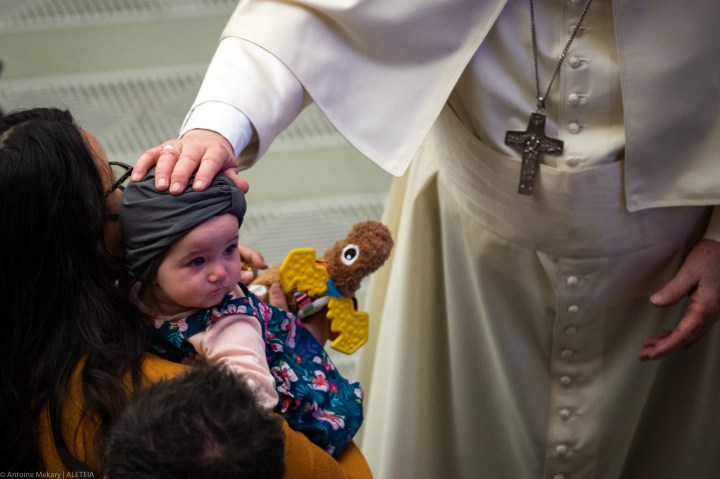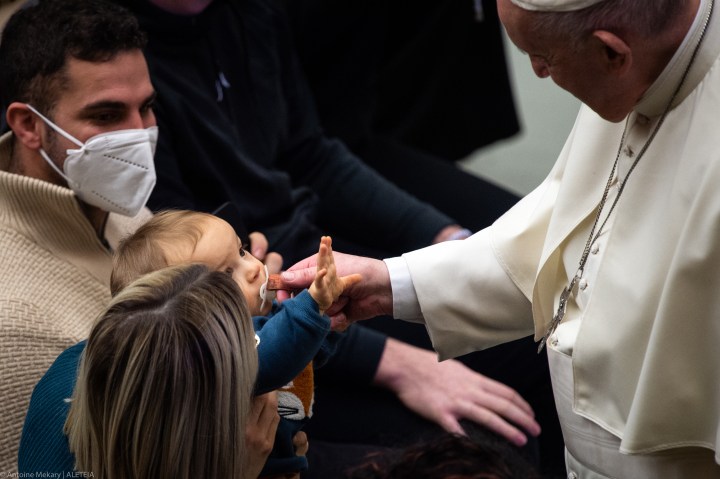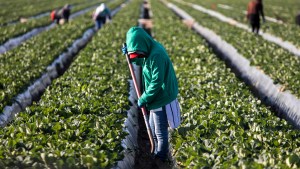Pope Francis turned to St. Joseph as a model of work – one who knew and experienced the grueling parts of labor, not only in the physical demands, but also in the psychological burdens of uncertainty and poverty.
In the general audience of January 12, the Holy Father stressed that work should exalt our human dignity:
Not enough consideration is given to the fact that work is an essential component of human life, and even of the path of sanctification. Work is not only a means of earning a living: it is also a place where we express ourselves, feel useful, and learn the great lesson of concreteness, which helps keep the spiritual life from becoming spiritualism. […] In fact, work is a way of expressing our personality, which is relational by its nature. And, too, work is a way to express our creativity: each one of us works in their own way, with their own style: the same work but with different styles.
But, the Pope lamented, so much of the world of work for so many people is an assault to their human dignity.
Francis’ reflection was a mournful protest on behalf of those who suffer, in light of the example offered by Joseph and Jesus:
The Greek term tekton, used to specify Joseph’s work, has been translated in various ways. [..] “Carpenter” or “joiner” was a generic qualification, indicating both woodworkers and craftsmen engaged in activities related to construction. It was quite a hard job, having to work with heavy materials such as wood, stone, and iron. From an economic point of view, it did not ensure great earnings, as can be deduced from the fact that Mary and Joseph, when they presented Jesus in the Temple, offered only a couple of turtledoves or pigeons (cf. Lk 2:24), as the Law prescribed for the poor (cf. Lv 12:8).
Thus, the young Jesus learnt this trade from his father. Therefore, when as an adult he began to preach, his astonished neighbours asked: “But where did this man get this wisdom and these mighty works?” (Mt 13:54), and were scandalized by him (cf. v. 57), because he was the son of the carpenter, but he spoke like a doctor of the law, and they were scandalized by this.
The Pope said he thought of all the workers of the world, but
especially those who do grueling work in mines and certain factories; those who are exploited through undocumented work; the victims of labour: we have seen a lot of this in Italy recently; the children who are forced to work and those who rummage among the trash in search of something useful to trade…
… Let’s think about those who are exploited with undeclared work, who are paid in contraband, on the sly, without a pension, without anything. And if you don’t work, you have no security. Undocumented work. And today there is a lot of undocumented work.
[Let us think] of the victims of work, who suffer from work accidents. Of the children who are forced to work: this is terrible! A child at the age of play, who should be playing, forced to work like an adult! Children forced to work. And of those — poor people! — who rummage in the dumps to look for something useful to trade: they go to the dumps… All these are our brothers and sisters, who earn their living this way: they don’t give them dignity! Let us think about this. And this is happening today, in the world, this is happening today.
Those who suffer without work
But I think too of those who are out of work. How many people go knocking on the doors of factories, of businesses [asking] “Is there anything to do?” — “No, there’s nothing, there’s nothing. [I think] of those who feel their dignity wounded because they cannot find this work. They return home: “And? Have you found something?” — “No, nothing… I went to Caritas and I brought bread. What gives dignity is not bringing bread home. You can get it from Caritas — no, this doesn’t give you dignity. What gives you dignity is earning bread — and if we don’t give our people, our men and women, the ability to earn bread, that is a social injustice in that place, in that nation, in that continent. The leaders must give everyone the possibility of earning bread, because this ability to earn gives them dignity. It is an unction of dignity, work. And this is important.
Those who have lost hope
As well, the Holy Father remembered and prayed for those who have suffered such difficulties that they have lost the desire to live:
And how often the search for work becomes so desperate that it drives them to the point of losing all hope and the desire to live. In these times of pandemic, many people have lost their jobs — we know this — and some, crushed by an unbearable burden, reached the point of taking their own lives. I would like to remember each of them and their families today. Let us take a moment of silence, remembering these men, these women, who are desperate because they cannot find work.




